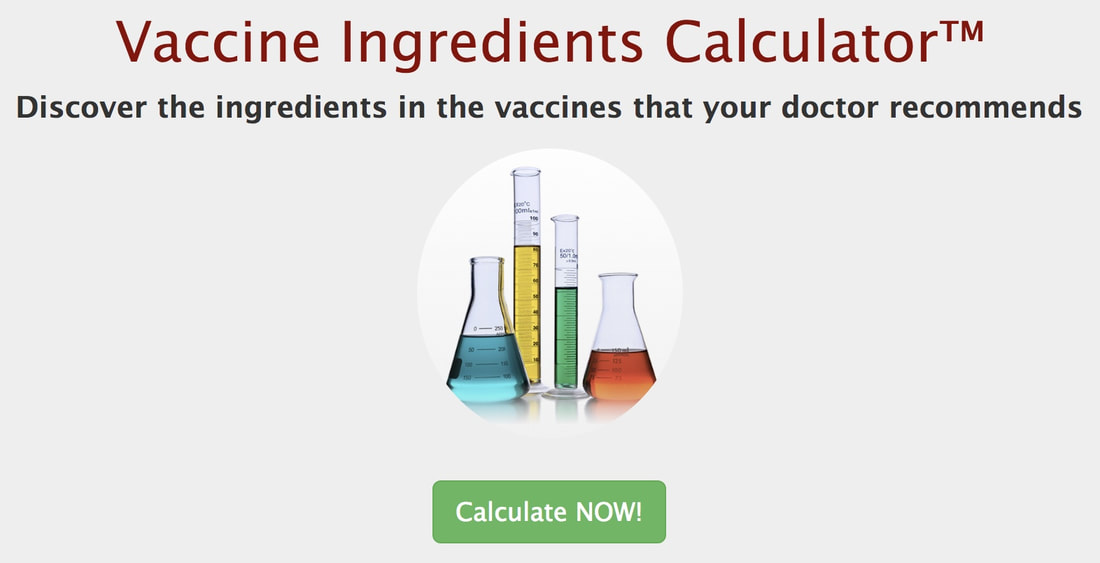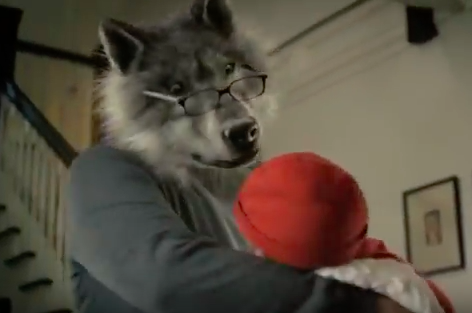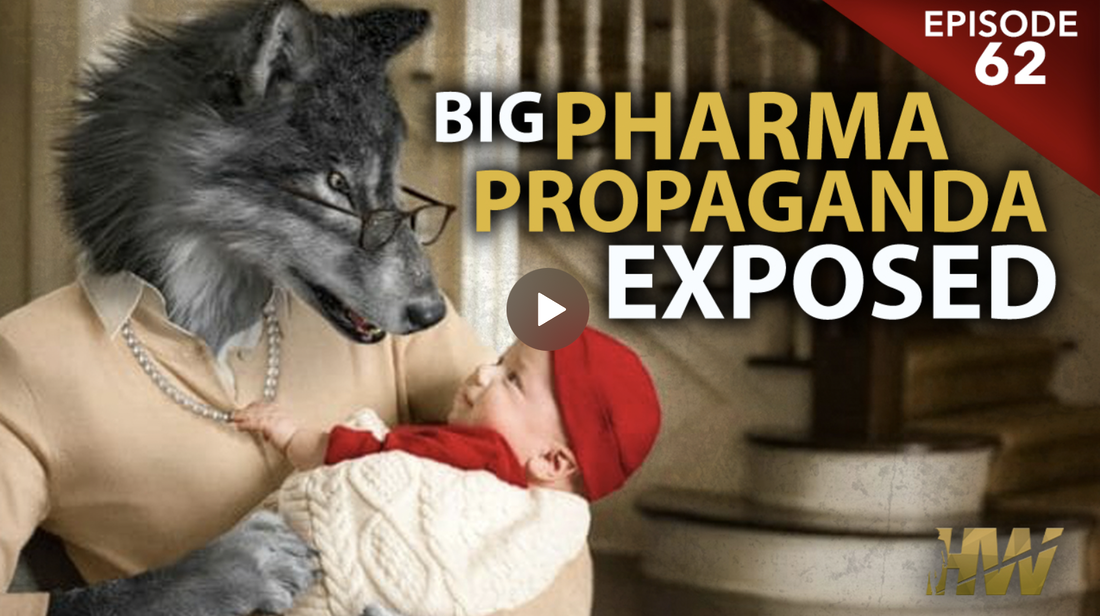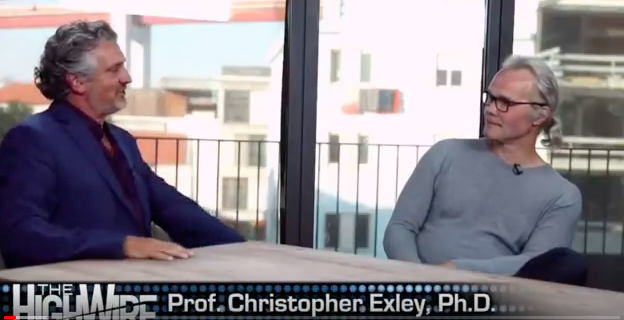|
In the late 80's, when I started researching vaccines, I did things the "old fashioned" way. I sought out and read books and magazine articles; asked a lot of questions and talked with people who had experienced the illnesses we now vaccinate for. (I invite you to read "Why I started researching vaccines.") Fast forward 30 years, and thanks to technology and the internet, including a calculator and apps that you'll read about below, information is literally at your fingertips 24/7; so there's no excuse for not being well informed about vaccines before you make a decision that can and often does alter the rest of your and your child's life. It's not enough to simply trust your doctor's recommendation. Far too many parents, whose children are included at "We Remember" and "Families Speak" regret that they did just that. I urge parents (and grandparents) to research vaccines thoroughly. I've compiled a list of where to start here. Keep reading to learn more about those "techie" tools; and please tell others about them. They only work if people know about and use them! So what is VaxCalc? It's a free tool to help you learn about the ingredients in vaccines that your doctor recommends; compute ingredient exposure for multiple vaccinations; protect against a preventable allergic reaction; compare vaccine brands so you can request a brand with less toxic ingredients and much more.
0 Comments
Updated 2/9/2023 While with a group of friends, the subject came up that grandparents (and other family members) are being told they must get a Tdap vaccine before meeting the new baby in the family to protect baby from pertussis/whooping cough. It's an issue that has caused conflicts within some families. You might recall seeing the rather frightening GlaxoSmithKline (GSK) "big bad cough" campaign, targeting grandparents, where Grandma morphs into a big bad wolf ready to cough on the infant and infect him or her with pertussis. In case you haven't seen it, it's included in the video below. It is true that pertussis (whooping cough) is especially dangerous for a young baby; but the fact is -- and it's backed by science -- the adult getting the pertussis vaccine just might put baby at an even higher risk; because even though the vaccine recipient will not exhibit symptoms -- which would probably have kept him from visiting baby in the first place -- he or she can unknowingly have and transmit the illness to others, including the new baby. Del Bigtree (Vaxxed, ICAN, HighWire) gives a good explanation -- complete with props -- in the video below. Take time to watch. Click here or image for video. Segment begins at about minute 14:31. So, if you or someone you know has been told they must get a pertussis vaccine to protect the new baby, be sure to read the information I've included below and share it with them...and their doctors. Acellular pertussis vaccines protect against disease but fail to prevent infection and transmission in a nonhuman primate model In this study, we show nonhuman primates vaccinated with aP were protected from severe symptoms but not infection and readily transmitted Bordetella pertussis to contacts...and a cross-sectional study showed that postpartum aP vaccination of mothers did not reduce pertussis illness in young infants. These data suggest that cocooning is unlikely to be an effective strategy to reduce the burden of pertussis in infants. Read full study. Resurgence of Whooping Cough May Owe to Vaccine’s Inability to Prevent Infections The startling global resurgence of pertussis, or whooping cough, in recent years can largely be attributed to the immunological failures of acellular vaccines, School of Public Health researchers argue in a new journal article...“This disease is back because we didn’t really understand how our immune defenses against whooping cough worked, and did not understand how the vaccines needed to work to prevent it,” said Christopher J. Gill, associate professor of global health and lead author of the article. “Instead we layered assumptions upon assumptions, and now find ourselves in the uncomfortable position of admitting that we may made some crucial errors. This is definitely not where we thought we’d be in 2017.” Read more. The relationship between mucosal immunity, nasopharyngeal carriage, asymptomatic transmission and the resurgence of Bordetella pertussis The incidence of whooping cough in the US has been rising slowly since the 1970s, but the pace of this has accelerated sharply since acellular pertussis vaccines replaced the earlier whole cell vaccines in the late 1990s. A similar trend occurred in many other countries, including the UK, Canada, Australia, Ireland, and Spain, following the switch to acellular vaccines. The key question is why. Two leading theories (short duration of protective immunologic persistence and evolutionary shifts in the pathogen to evade the vaccine) explain some but not all of these shifts, suggesting that other factors may also be important. Read more. Why is Whooping Cough on the Rise? Evidence points to limitations of the current pertussis vaccines
Whooping Cough Outbreaks Continue Nationwide Due to Failed Pertussis Vaccine Once blamed on unvaccinated children, few today deny the fact that fully vaccinated children are spreading whooping cough as outbreaks continue across the U.S...The pertussis vaccine is supposed to protect against whooping cough, and even though health officials now acknowledge that the vaccine is not effective, it is still required. Read more. Pertussis: Vaccine Failure, Not Failure to Vaccinate These studies show that the Pertussis (whooping cough) vaccine has now failed. Studies show that by five years after completion of the DTaP series, children were up to 15 times more likely to acquire pertussis compared to the first year after the series. Read more. *The pertussis vaccine is only available in combination with tetanus and diphtheria. Before getting any vaccine, be sure to weigh the risks and the benefits. Read the actual vaccine package insert for a list of ingredients, warnings, contraindications, adverse effects, etc., and read the Vaccine Ingredients & Media Summary. Last month, The 5th International Symposium on Vaccines, sponsored by the Children's Medical Safety Research Institute (CMSRI) took place in Lisbon, Portugal as part of the 11th International Congress on Autoimmunity. The symposium brought together medical researchers from around the world to share the latest research on vaccine safety and potential links between vaccine adjuvants and adverse autoimmune reactions. Read more about the symposium, including participants, and abstracts for each presentation here. While attending the symposium, Del Bigtree (Vaxxed, ICAN, HighWire) interviewed world-renowned aluminum toxicity expert and symposium organizer, Professor Christopher Exley, PhD; and world-renowned autoimmunity expert and Congress President, Yehuda Shoenfeld, MD. Watch the interviews below and listen to what these brilliant scientists say about their findings, the integrity of scientific research today; the loss of funding and other challenges that university researchers face; and why it is increasingly difficult for scientists to do independent research. Please share this information with others, especially doctors and vaccinating parents who cling to the belief that "vaccines are safe and effective" and that when it comes to vaccine safety, "the science is settled." It's difficult for me to understand how anyone who listens to these interviews wouldn't question vaccine safety if they haven't done so already.
|
Author"Why I started researching vaccines." Archives
July 2024
Categories
All
|




 RSS Feed
RSS Feed